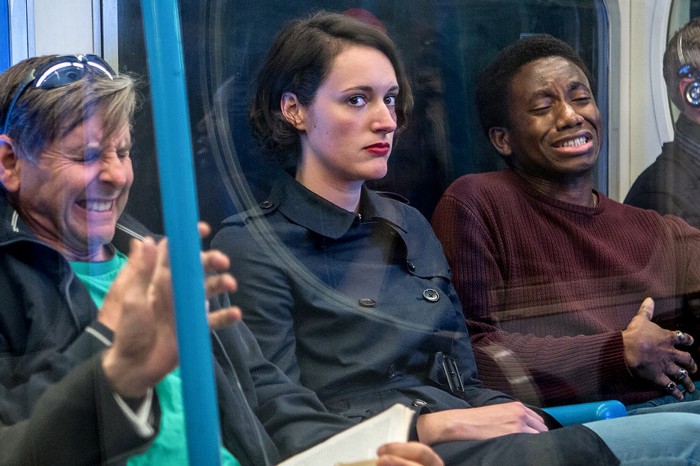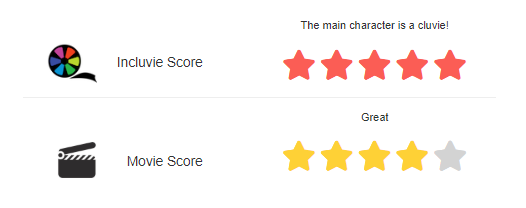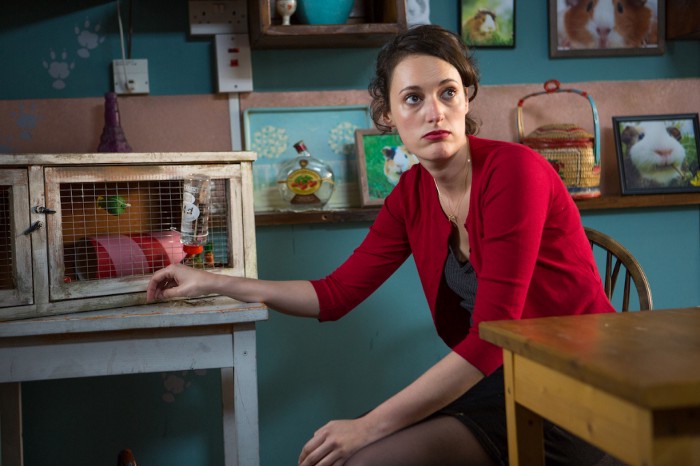Shortly after season two of Fleabag dropped on Amazon Prime in 2019, Barack Obama put it on his list as one of his favorite television series of the year. A particular scene in the first episode of season one will make you wonder what was going through his head when he was watching this show…
For a long time, Fleabag has been one of those shows that I have heard great things about, but I’ve never gotten around to watching myself. While looking for a new comedy series to watch, I figured I’d give it a shot; and I am so glad that I did. Despite being only twelve episodes, Fleabag contains brilliantly sharp writing, a fantastic ensemble, and some genuine emotional drama to accompany all of its quirky comedy.
Created, written by, and starring Phoebe Waller-Bridge, the series follows an eccentric woman, referred to as Fleabag by her friends and family, who feels that her world is crashing down around her in the wake of tragedy. She masks her pain with her off-brand humor and her sex drive, but she continuously feels that she is stuck with nowhere to go. While it may seem that the people around her have better footing than she does, Fleabag comes to realize that they’re just as lost as she is.

Fleabag captures the personal crisis of someone who feels they are on autopilot. There is fantastic character development conveyed merely by a glance into the camera, or monologue about nothing, or the refusal to say something. This is simply brilliant writing, because our recognition of the characters’ growth comes from us understanding who they are, rather than the series actively relaying these arcs. The depth comes from the details.
One of the best elements of this show is its use of breaking the fourth wall. Fleabag will often make side glances to the camera, or will speak to us directly. This immediately reinforces that the series is from her perspective, and that we’re getting a window into her world. This paints everyone else as an other; that it’s her versus everybody, which is exactly how she views things. As a result of this technique, she stands out more. It communicates that Fleabag’s perspective of the world doesn’t fall in line with everyone else.
Phoebe Waller-Bridge plays this role perfectly. Her comedic timing is excellent; through sarcastic remarks or glances into the camera, she accents other character’s stupidity. Waller-Bridge embodies the feeling that only one more straw is needed before everything falls apart. Everything is on the verge of complete collapse. While the comedy certainly comes naturally to her, Waller-Bridge equally excels with the drama. There are some truly heartbreaking moments where Fleabag is absolutely distraught. Waller-Bridge plays this by going for the subtler approach, which shows how Fleabag tries to suppress her inner pain.

In the second season, there is a great storyline involving Fleabag and a priest (Andrew Scott). I won’t go into any details about this, as a lot of the fun comes from seeing how it unfolds. Their connection feels organic, and the way that their story plays out is rather unexpected. What starts out as fun back-and-forth becomes a deeply emotional character arc for Fleabag. This arc is a really good example of the quality of the writing on this show. It’s subtle and natural, and you don’t realize how hard it hits until you reach the end.
Overall, Fleabag is a great series. Phoebe Waller-Bridge creates a multidimensional character who is filled with great wit and incredible emotion. Waller-Bridge really brings her A-game to this series, both with the strong writing and her visceral performance. She has said that Fleabag is finished with two seasons, and there will not be a season three. That is disappointing, since it’s such a great series, but I appreciate the fact that she wants to end it where she feels the story should end, rather than continuing it solely because it’s popular. I think that shows an incredible amount of maturity in an artist. Whatever Phoebe Waller-Bridge does next, I will eagerly check it out!
Fleabag Seasons One and Two are available to stream on Amazon Prime.

Author: Nathanael Molnár, originally published [4/18/2020]

Comments